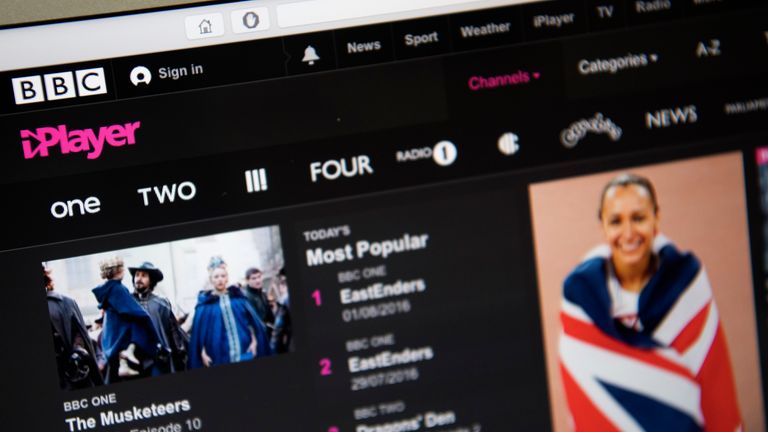TV viewers who refuse to pay the BBC licence fee can expect to avoid being prosecuted in future, in a move by Boris Johnson that could lead to the fee being scrapped altogether.
The outgoing culture secretary Nicky Morgan, in one of her last acts before stepping down, is launching a public consultation on whether to end the non-payment of the licence fee being a criminal offence.
The move comes in the week it was announced that the cost of the annual TV licence fee will increase by £3, from £154.50 to £157.50, from 1 April and at a time when the BBC is entering a period of turmoil.
Its director general, Lord Hall, is quitting, BBC News is facing spending cuts of £80m and the loss of 450 jobs, and the prime minister and senior Tory ministers are on collision course with the corporation.
Just days before the general election in December, Mr Johnson said he was "looking at" abolishing the licence fee and last week the BBC refused to broadcast his Brexit day address because it was filmed in-house by 10 Downing Street.
Advertisement
The government is also at war with the BBC over axing free TV licences for over-75s, which will hit 3.7 million pensioners when they have to start paying for them in June, though 900,000 receiving pension credit will not have to pay.
As well as a consultation on non-payment, Baroness Morgan is announcing a new flexible payment scheme – the Simple Payment Plan – to help vulnerable people, including those over the age of 75, struggling to pay the licence fee.
More from Bbc
Currently anyone who installs or uses a TV or watches BBC iPlayer without a licence is guilty of a criminal offence. The fine for non-payment can be as high as £1,000 and refusing to pay can lead to a jail term.
But the government claims the broadcasting landscape has changed dramatically and therefore it is right to look again at decriminalising TV licence evasion "in order to ensure a proportionate and fair approach to licence fee penalties and payments, which protects the most vulnerable in our society".

Ahead of a speech at the Policy Exchange think tank, Baroness Morgan said: "As we move into an increasingly digital age, with more and more channels to watch and platforms to choose from, the time has come to think carefully about how we make sure the TV licence fee remains relevant in this changing media landscape.
"Many people consider it wrong that you can be imprisoned for not paying for your TV licence and that its enforcement punishes the vulnerable.
"Today we are launching a public consultation to make sure we have a fair and proportionate approach to licence fee penalties and payments, that protects those most in need in society.
"Alongside this we're also announcing a new payment plan to allow people who struggle to pay the licence fee to spread out their payments.
"This will help prepare the BBC and public service broadcasting for the future and make sure it continues to work for our society, our economy, and the public which funds it."
In 2018, more than 121,000 people were convicted and sentenced for evasion and issued with an average fine of £176. There were around 26m TV licences being used in the UK last year, which generated an income of £3.69 billion for the BBC.
Baroness Morgan&Read More – Source
[contf]
[contfnew]

sky news
[contfnewc]
[contfnewc]





